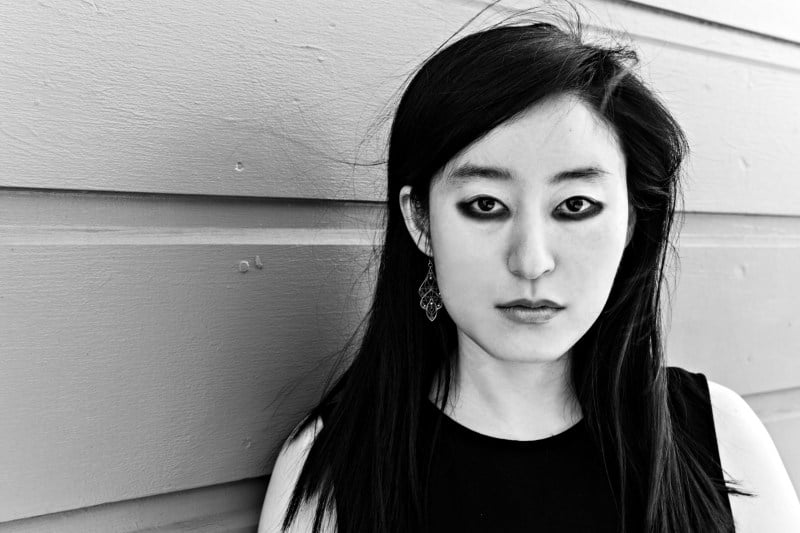Trigger warning: This column discusses rape and abortion.
I read R.O. Kwon’s 2018 debut novel “The Incendiaries” in the span of one week. It was that time of year in the Bay Area when it wouldn’t rain but the sky was constantly overcast. I think it’s partially because of that atmosphere that I consider “The Incendiaries” a cloudy novel, though I wouldn’t say that it reads ominously. It’s a book that deals very closely with the characters within its pages, to the point where I almost wish I didn’t know as much as I do about them.
“The Incendiaries” centers around a cult at the fictional Edwards University that eventually commits bombings on abortion clinics. The novel is narrated by three primary characters: Phoebe Lin, a Korean American college student who is indoctrinated by the cult; Will Kendall, a fellow college student and Phoebe’s boyfriend, who becomes wary of the cult’s influence on Phoebe; and John Leal, a member of the cult who persuades Phoebe to join.
At Edwards University, Phoebe is recruited into a cult by John Leal, an activist who claims to know her father. The cult is called Jejah, and it regularly holds group confessions and rallies against abortion clinics. From the start, Will is skeptical and wary of John Leal’s influence over Phoebe. He joins Jejah for a period of time but quickly realizes its insidiousness, triggering his relationship with Phoebe to become fraught with tension. Their relationship comes to an end when Will rapes Phoebe. Soon after, Phoebe, with the backing of other members of Jejah, bombs several abortion clinics, killing five people.
Much of this novel is narrated in retrospect: Will, at the beginning of the novel, describes a party that he attended with Phoebe, and admits, “It’s possible these are just the details I’ve saved. It could be grief’s narrowed vision: I’ve noticed what I’ve lacked.” There is something so muted about his narration: Will obsesses over Phoebe. He loves her, or at least he expresses this quite a lot, enough that it seems close to fact. Even when he reveals that Jejah is a cult, his voice is strangely nostalgic — even fond — and almost delusional: “This situation, well, it was a crisis,” Will narrates. “The girl I loved was in a cult — and that’s what it is, I thought, a cult. It was a problem, but I’d solve it, because I was intelligent.”
Reading “The Incendiaries” was a troubling experience. Kwon’s prose reads fluidly and easily; there is something almost endearing about each of these characters’ voices, the way that they grapple for truth or love or righteousness, even amid committing heinous acts of violence. I keep thinking this novel is about nostalgia. Maybe it’s due to how potent the longing is in this novel. Maybe it’s because most of my days now are spent, more often than not, staring at a computer screen or looking out windows. I keep daydreaming about places or moments that I miss, though I can’t say for sure that they’re memories at all. If they’re memories, then there still remains some possibility of returning to them — but if they are fabricated, there is no such hope.
Even the ending of the novel is rather nebulous, filtered through Will’s perspective. After hearing about a local who saw Phoebe jump from a bridge, Will asserts that “it could have been nothing at all: a flock of black-pinioned birds, flicking mid-flight, like a ponytail. The feathers shredding trapezoids of blue into the trick lines of a girl’s dress.” He obscures the eye-witness’s account of Phoebe’s suicide by layering an image of birds on top of it. He refuses to consider any possibility of Phoebe’s death: in a later reflection, Will decides that, even if Phoebe did jump, she would be able to survive it, as she was a good swimmer.
I wonder whether the muted-ness of this book is derived from how intensely focused Will’s narration is; it easily overwhelms Phoebe’s and John Leal’s portions. It allows me to doubt other elements of the narrative: how Phoebe truly perceives Will, her part in Jejah’s bombings. Phoebe’s narrated portions are less cohesive and direct than Will’s. Nevertheless, they are surprising in their intensity.
Some of the most striking moments of the novel to me are Phoebe’s confessions with Jejah. During one confession, she admits to her mother’s death from a car accident in which Phoebe was the driver. During another, she recalls seeing a woman and a young boy speaking Korean on the street: “I watched them, feral with longing. When a taxi slid past, I wished: Hit them. In pain, I wanted the world to feel as I did.”
In this way, the characters and stories in “The Incendiaries” are filled with more longing than they can handle; they are troubling in their humanness — too extreme to be understood, but real enough to be disturbing.
Contact Lily Zhou at arts ‘at’ stanforddaily.com.
